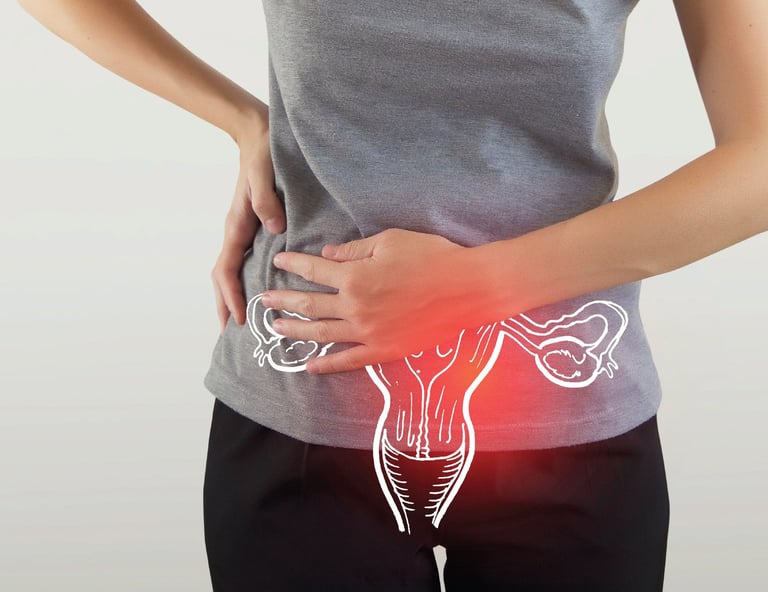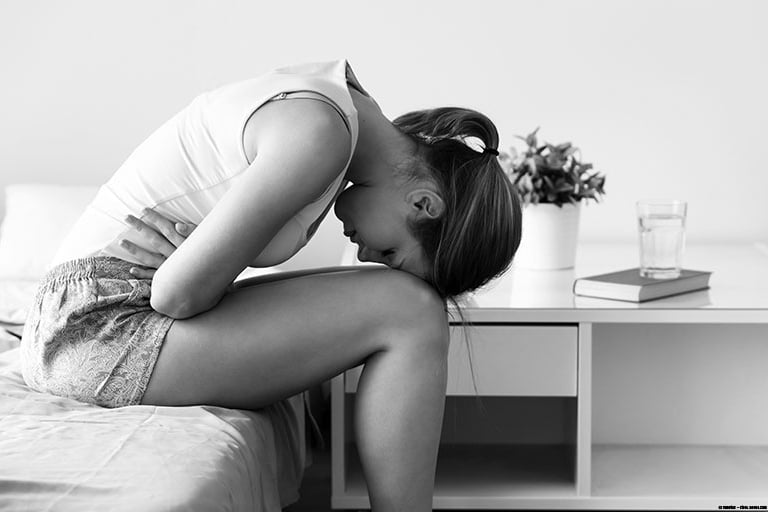

Female Health Issues


PCOD (Polycystic Ovarian Disease)
What is PCOD?
Polycystic Ovarian Disease (PCOD) is a hormonal disorder in women, characterized by enlarged ovaries with multiple cysts and irregular menstrual cycles. It may lead to metabolic disturbances and affect reproductive health.
Common Causes
Hormonal imbalance (excess androgens)
Insulin resistance
Obesity and sedentary lifestyle
Stress and genetic predisposition
Acute PCOD
Irregular menstrual periods
Acne and oily skin
Weight gain
Excessive hair growth on face or body
Chronic PCOD
Infertility or difficulty conceiving
Prolonged menstrual cycles
Thinning scalp hair
Signs & Symptoms


Leucorrhea
What is Leucorrhea?
Leucorrhea is a condition marked by excessive white or yellowish vaginal discharge, often signaling hormonal imbalance, infection, or weakened immunity. It can be acute or chronic, affecting comfort and daily life.
Common Causes
Hormonal imbalance
Weak immunity or infections
Poor hygiene
Stress and dietary factors
Acute Leucorrhea
Excessive vaginal discharge
Itching and irritation
Foul or unusual odor
Chronic Leucorrhea
Persistent discharge
Recurrent infections
Discomfort affecting daily activities
Signs & Symptoms


What is Dysmenorrhea?
Dysmenorrhea refers to painful menstruation caused by uterine contractions or hormonal imbalances. It can present as acute pain during periods or become chronic if recurring over time, affecting daily life and well-being.
Common Causes
Hormonal fluctuations
Uterine abnormalities or endometriosis
Stress and sedentary lifestyle
Nutritional deficiencies
Acute Dysmenorrhea
Severe lower abdominal cramps
Back pain
Nausea and fatigue during menstruation
Dysmenorrhea
Chronic Dysmenorrhea
Persistent menstrual pain
Irregular cycles
Mood disturbances and irritability
Signs & Symptoms


Period-related Problems
What are Period-related Problems?
Period-related problems include irregular, heavy, or scanty menstrual flow, premenstrual syndrome (PMS), and other menstrual disturbances. These issues can be acute or chronic, affecting overall reproductive and hormonal health.
Common Causes
Hormonal imbalance
Stress and lifestyle factors
Nutritional deficiencies
Underlying reproductive disorders
Acute Problems
Irregular menstrual flow
Cramping and lower abdominal pain
Mood swings and fatigue
Signs & Symptoms
Chronic Problems
Persistent irregularities in menstrual cycles
Anemia due to heavy bleeding
Infertility and hormonal disturbances


Infertility
What is Infertility?
Infertility is defined as the inability to conceive after 12 months of unprotected intercourse. It can arise from male or female factors and may be acute (recent difficulty in conceiving) or chronic (long-standing reproductive challenges).
Common Causes
Hormonal imbalances
PCOD, uterine disorders, or other female reproductive issues
Male factor infertility
Lifestyle factors, stress, and age-related decline
Acute Infertility
Difficulty conceiving despite regular unprotected intercourse
Irregular menstrual cycles or mild hormonal symptoms
Chronic Infertility
Persistent inability to conceive
Dysfunction of reproductive organs
Associated hormonal or metabolic disturbances
